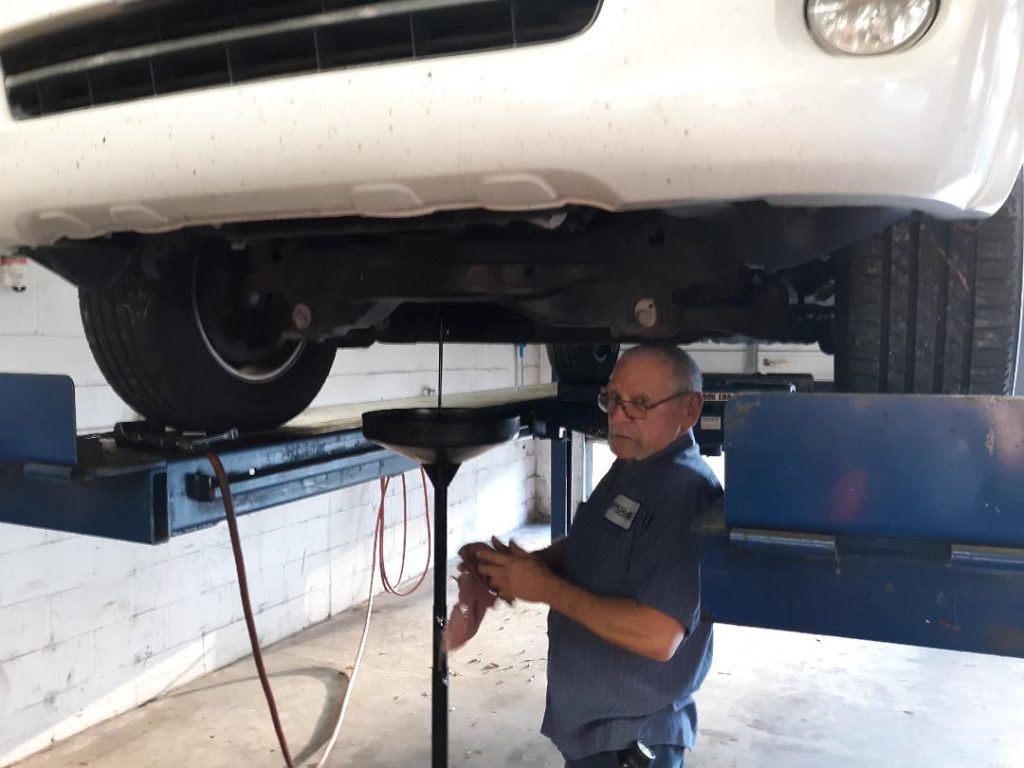
Get Your Oil Change Coupon Here and Save Your Engine


Auto Repair Brooksville

It’s important to know the function and purpose of your vehicle’s cooling system, because this part of the entire system will either extend the life of your engine, or have you shopping for a new one.
Something so small as a bad thermostat can block the cool fluid from circulating into your engine and cause major damage. Overheating is a good sign that something is wrong. If your car is running at unsafe temperatures, it will cause engine damage.
Steam coming from under the hood would be a good visual that your vehicle has overheated. It’s a good idea to check your temperature gauge once in a while, especially when you are sitting idle at a traffic light. If you notice the temperature rising, you may want to check your fluid level (when the engine is cold). This is a common problem that can cause major damage to your engine, if neglected.
Once you have a good idea of what to look for, you can then manage the health of the system. We want you to know a little something, because we don’t want you to spend your hard-earned money on things that can be prevented. Prevention begins with knowledge. So, here are things that you should know.
The cooling system is a crucial part of your vehicle’s engine life. It’s main and only purpose is to keep your engine running at a consistent temperature. There are several components to the cooling system, and each has a purpose that must be met in order for the system to function properly.
The coolant is a liquid compound that is equal amount of distilled water and liquid antifreeze. This has the cooling benefit of water, but the antifreeze will keep it from boiling over normal boiling temperatures. DO NOT add tap water to fill the system. 50/50 antifreeze solution is available at your local auto parts store, or you can bring it in to us.
Tap water has minerals that can deform deposits inside the radiator and the cooling system passages of your engine. And over a long period of time they can lead to over-heating. If you want to add water, you should only use distilled water or, de-ionized water.
The radiator will disperse the heat from the cooling system. As the coolant flows into the radiator, cool air passes through the fins of the radiator, cooling it down before it flows back into the engine. If the radiator begins to leak, or the fins become damaged, that can cause your cooling system to fail and your car will overheat.
Your radiator also has a fan that pushes or pulls air through it. If your radiator fan is electric, the motor will kick on with a fan relay when the heat builds up to a certain temperature. If the relay goes bad or other electrical issues prevent the fan from coming on, you will also experience overheating.
This component is important to have. If you are using a rag, you need to get a Radiator Pressure Cap. Without an actual cap, your cooling system won’t pressurize and won’t function properly. This one inexpensive part can save you from costly, major engine repairs.
The water pump is what pushes the coolant through the system. Typically, a failed water pump goes bad over time and wear. But the wrong coolant or bad coolant can cause corrosion inside of the water pump. Also, a belt that’s either misaligned or too tight can make the water pump seize. Water pumps can also leak.
This part of the cooling system regulates the flow of coolant going into the engine. The thermostat opens and closes depending on the temperature of the coolant. Like any wearing part, this one will eventually require replacement. For most cars, this is an easy fix, but if left neglected, the problems that can compound will quickly add hundreds or even thousands to your bill.
Beat the Heat: Florida’s Summers Are Brutal
If your car is running hotter during the months of April through September, you may want to have your cooling system checked out. Summers in Florida are brutal. If your car is parked in the sun for hours, it doesn’t get a good chance to cool down. If you sit in traffic a lot, that too isn’t helping it either. The health of your engine and the health of your bank account are both going to suffer if your car’s cooling system is neglected. So, please take the time to check a few things, or bring your vehicle to the Bypass Garage and let us look at it for you.
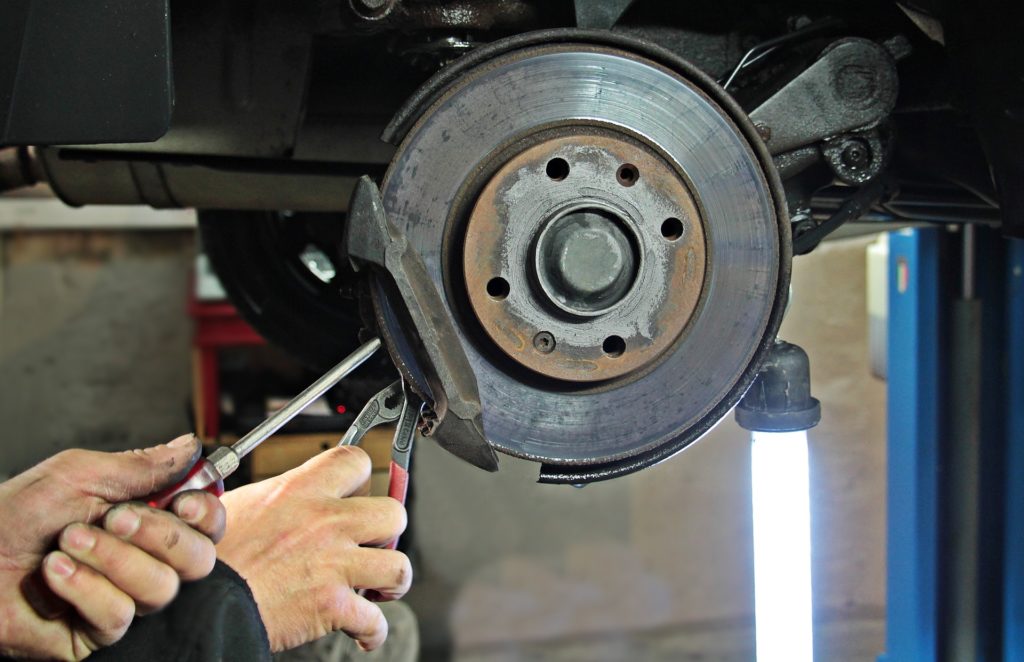
The brake system on your vehicle is essential to your safety, and the safety of everyone else on the road. We take great pride in the work we do here at the Bypass Garage…especially when it comes to your safety and the safety of others.
Brakes, like any other wear item, have a limited lifespan. Under normal conditions, you should be able to get about 40,000 miles from a set of pads. Sometimes there may be another issue that can wear them out prematurely. Also, there is much more to a brake system than just pads and rotors. Click here for more information. Having your brakes checked out periodically is always a great idea!
All this month, we are offering a FREE brake inspection as our way of giving you piece of mind. Knowing there is an issue lurking is one thing…driving blind to a potentially serious safety hazard is completely another! Call us today for an appointment.
(352) 796-7918
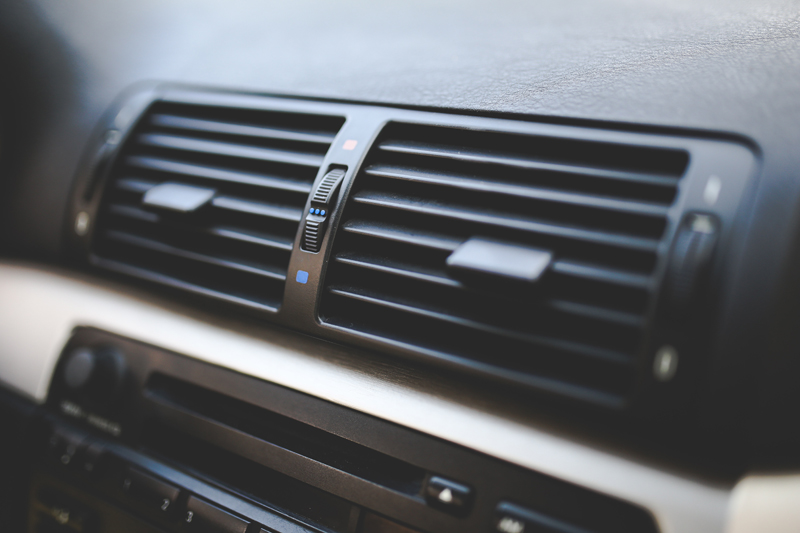
Free A/C Inspection Includes: visual inspection of belts, hoses and temperature inspection at the air ducts. Call us before it gets too hot!
The disk brake system is what most modern vehicles are using primarily. This is a hydraulic system that should be inspected regularly to ensure your safety. Disk brakes are relatively easy to understand. The diagram below will make it even easier.
When the brake pedal is pushed down, a plunger inside the master cylinder forces brake fluid through a system of high-pressure tubes and hoses to each wheel’s brake. The master cylinder is usually found in the engine compartment, on the firewall on the driver’s side. The most common problem with master cylinders is an internal leak. You will notice a slow sinking of the brake pedal to the floor when this happens. If you feel this is a problem you are experiencing, come in and have us inspect your brake system today.
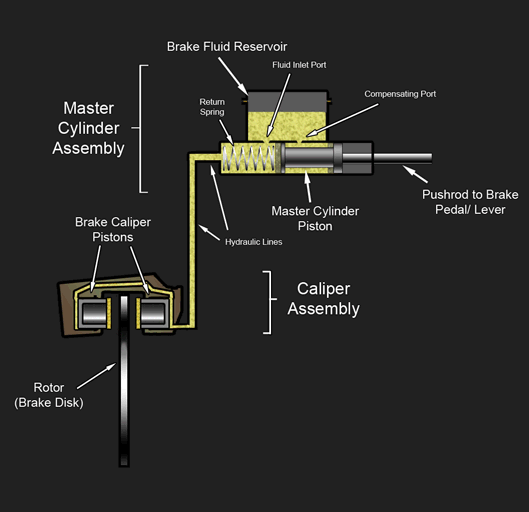
Brake fluid is hydraulic fluid specially designed for brake systems. It will defy high temperatures without boiling, and cold temperatures without thickening. The current standard for brake fluid that has been set by the Department of Traffic is DOT-3. Brake fluid levels will drop slightly as the brake pads wear, this is normal but if fluid levels drop substantially in short period of time, you may need to have your brakes checked. Fluid cannot be compressed in a sealed system, but air can… if there is air present in the brake fluid, the brake pedal will have a sponginess effect, and braking efficiency is greatly reduced. If your brakes have this sponginess feel to the pedal, the brake system must be bled to remove air from the brake lines. This is also a good reason to have your brakes checked.
Disk Brakes are used to stop everything from cars, trains to jets! Disk brakes wear longer, adjust automatically, self-clean, and resist water better than any other brake system around. The design of the disk can vary from vehicle to manufacturer. Vents or holes in the disk help to cool the disk, as heat can build up quick when the brakes are applied. When changing brake pads, it is a good idea to “turn” the brake rotor (disk). This shaves off old brake pad material left in the rotor, also puts a new surface on the rotor. Rotors can only be turned to a safe thickness of the rotor. Our technicians can inspect your brake rotors and tell you if your rotors can be turned safely, or if they need to be replaced.

Front or Rear Disk Brake Special
Replace Brake Pads
Price Includes Labor and Pads Only. Rotors are extra if needed.
Regular price: $149.95
Special: $129.95
* for most cars.
Welcome to the Bypass Garage. If you have visited out About page, you know a little bit of the history of this American Dream come true. Here are some more photos from the past.
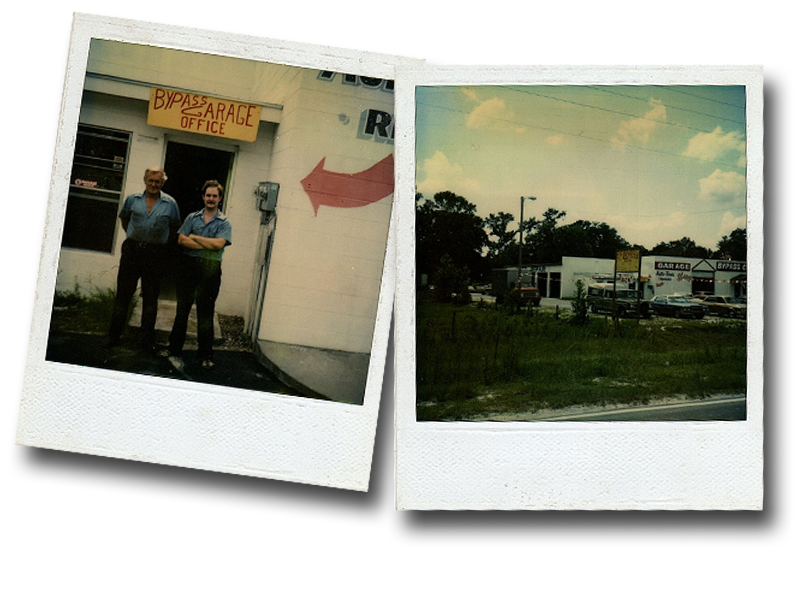 These were taken in 1982 at the Bypass Plaza in Brooksville, Florida.
These were taken in 1982 at the Bypass Plaza in Brooksville, Florida.